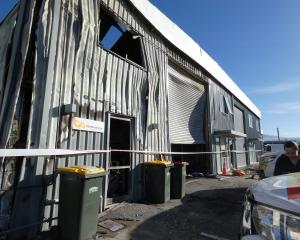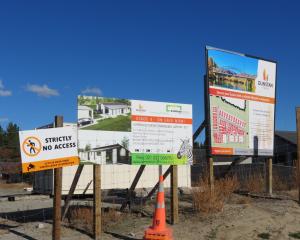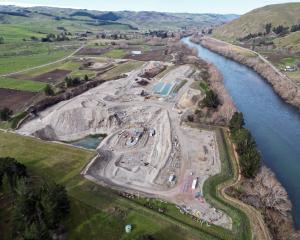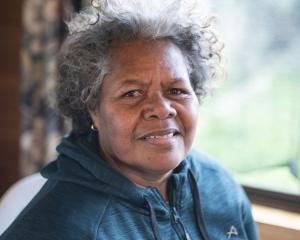New district plan rules will ''severely restrict'' the expansion of one of Central Otago's larger vineyards, which is located under high-voltage power lines, the vineyard owners claim.
Akarua Ltd, a 50ha vineyard at Bannockburn owned by the Skeggs family, was significant in terms of size and production in the region, Skeggs Group managing director David Skeggs told a hearing panel in Alexandra yesterday.
The Central Otago District Council panel has been hearing submissions this week on plan change 8, which focuses on the national power grid and aims to recognise the importance of the network and avoid buildings, structures and activities in a 12m corridor either side of high-voltage transmission lines, towers and poles. A statement from Mr Skeggs, who was unable to be at the hearing yesterday, was read by counsel Annabel Ritchie. In it he said his father, Sir Clifford Skeggs, was one of the initial investors in the Central Otago wine industry ''due to his love for wine and the region''.
Sir Clifford bought the Bannockburn property in 1995 and planting began the following year. Akarua now produced more than 22,000 cases of wine a year. Resource consent was granted for the winery buildings, sited under the transmission lines, in 1998 and the lines also went over the vineyard.
''I understand that there are very few situations within Central Otago where buildings associated with existing commercial operations are located under transmission lines,'' Mr Skeggs said. Akarua planned to expand its operation within the next three to five years and the only suitable area for some of those structures was within 12m of the transmission line centre line.
''If Akarua is not able to expand its existing wine production buildings, the future growth of the vineyard will be significantly restricted. This will have a major impact on the future economic viability and productivity of the vineyard,'' he said. Exemptions to the rules did not allow for the expansion of buildings or the construction of new buildings next to the existing wine production operation, Ms Ritchie said.
Making Akarua get non-complying activity consent for any alterations or extensions to buildings or to construct new ones was ''unnecessarily onerous'' and would impose extra costs and commercial risk. She suggested, as a site-specific rule for Akarua, making any extensions or additional buildings within 12m of the transmission lines on the property a restricted discretionary activity. Under the new rules, no residential building, educational facility, rest-home or hospital is allowed within 32m either side of a high-voltage transmission line and no subdivisions within 32m. The hearing finishes today. The panel will reserve its decision.












